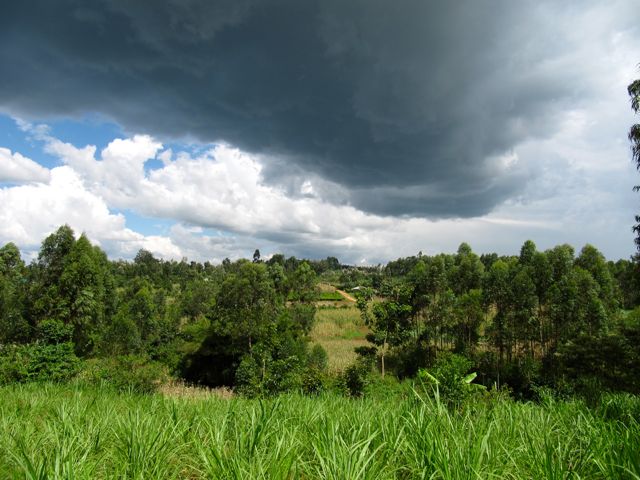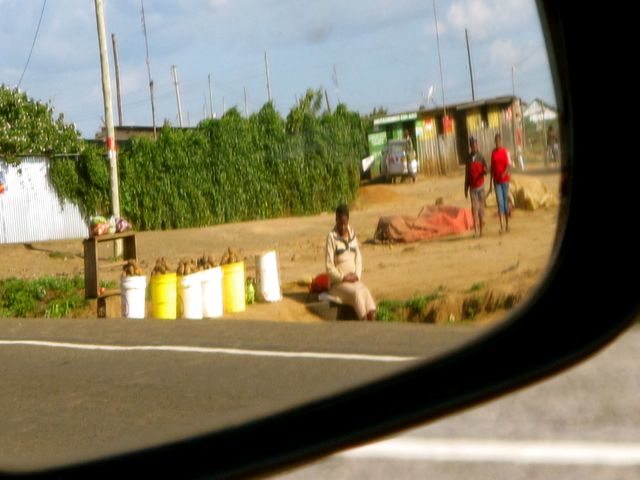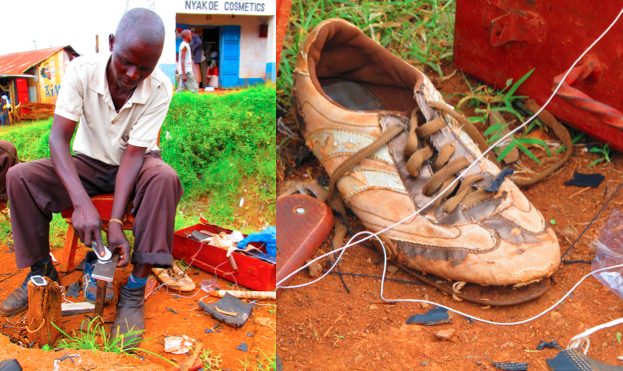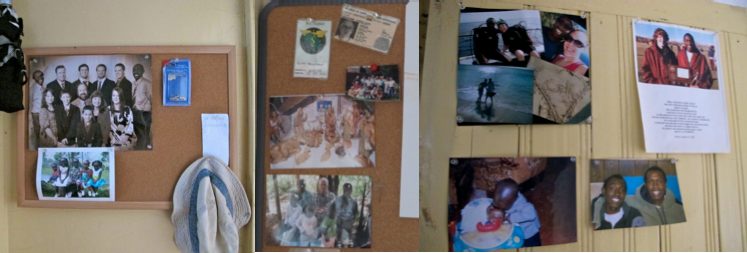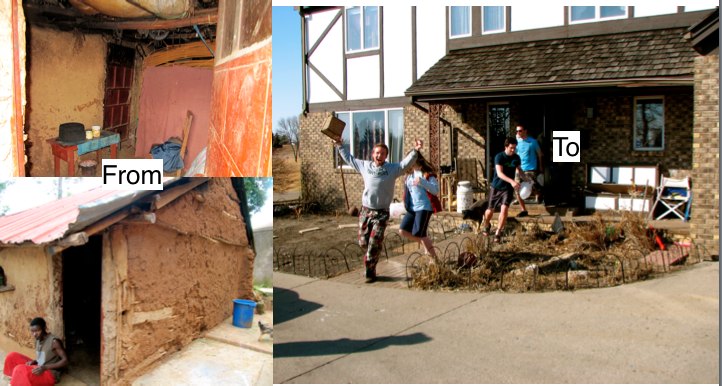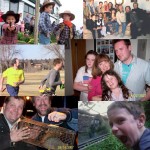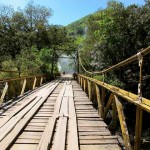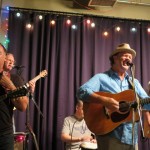On Monday, with Tyler finally here, we left the cray-cray-craziness of busy Nairobi to the countryside to discover the youthful stomping grounds of our brotha-brothers, Calvin and Joash.
As if reminding us why we were leaving, Nairobi showed us one of her least attractive qualities and kept us fighting traffic for three hours before we finally exited the capital and descended to the rural valley below.
The countryside felt like the inside of an Enya song— a bucolic simplicity where time slowed its sprint to a meandering walk. The rustic drive was interrupted only by the occasional stretch of primary colored shops that could have been third world anywhere.
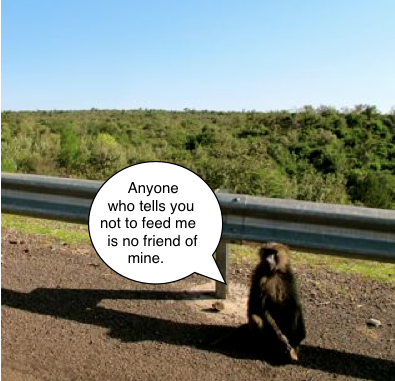 Baboons lined certain stretches of highway. We threw them the half eaten cores of plums. Some people say not to feed the animals. These people have never asked the animals their thoughts on the matter, because these baboons clearly thought our car was Christmas on wheels.
Baboons lined certain stretches of highway. We threw them the half eaten cores of plums. Some people say not to feed the animals. These people have never asked the animals their thoughts on the matter, because these baboons clearly thought our car was Christmas on wheels.
Calvin and Joash spent their formative years a half hour outside of the spiraling urban sprawl of Kisii, Kenya located in the province of the same name. It’s also the name of the tribe they belong to. Kisii described by one guidebook as a place of “chaos” not worth visiting.
My brotha-brothers grew up outside Kisii in a place called Raganga, a still stretch of Kenyan countryside where the primary occupation is subsistence farming.
To experience first hand where they grew up, what their day-in-day-out consisted of is to fully realize exactly how mind blowing the cultural shock of their displacement from here to Bismarck, North Dakota must have been like.
Much of the USA would employ the adjectives I’m using for Raganga on Bismarck—countryside, still, bucolic. But all things are relative. Seeing the open-air school of a few rooms where Calvin attended junior high and juxtapositioning that with Bismarck’s Saint Mary’s Central High School where he continued his education after that is the difference between a sand castle and Buckingham’s Palace.
For Calvin, this is a homecoming. As we walked through Raganga’s market with venders selling pots, tomatoes, cabbage, used clothing; Calvin greeted a few of his former classmates. One sold kitchenware. He pointed out different places and what significance they had to him growing up.
I also found a guy at the side of the road salvaging discarded shoes who sewed up a growing hole in my shoe for 30 cents. Woot, woot.
We’re staying with Roger, his wife, five kids and two cousins. One of the cousins is being taken care of by Roger since her parents, like his, passed away from AIDS. There are too many stories like this here in the Kisii province, which has some of the highest infection rates of anywhere in Kenya, the country with the most people living with the disease in Eastern Africa. But let’s save such writing for a later post.
Walking into Roger’s house, a house built by the late Evan Beauchamp, the missionary who set the wheels in motion that brought Calvin and Joash into my family’s life; feels strangely like walking into my house from another lifetime. I wonder if Tyler feels that way too. I could ask him, but he’s already asleep. Adorning the walls are a half dozen pictures of my family, giving a place I’ve never visited an eerie familiarity.
It was T.S. Eliot who said, “We shall not cease from exploration, and the end of all our exploring will be to arrive where we started and know the place for the first time.” But sometimes in our explorations, we arrive at a place for the first time and feel like we’ve known it our whole life.
Still standing is the mud hut where Calvin, Joash and Roger grew up, the house built by their father. Another stark contrast between the six-bedroom middle class home they Calvin and Joash relocated to.
We’re staying upstairs, in the much larger house Evan built and used to live in. Pictures of him still adorn the walls. His papers still cover the desk. Taped to the dresser are birthday cards that friends sent to him. To Calvin’s five nieces and nephews, Evan was like a grandfather. In African culture the dead still live in real ways amongst the living. You carry your loved ones with you in real ways. In so many ways this is still Evan’s house and on every inch of wall that can be felt, just like his legacy in Kenya continues to flourish in the lives he changed.

